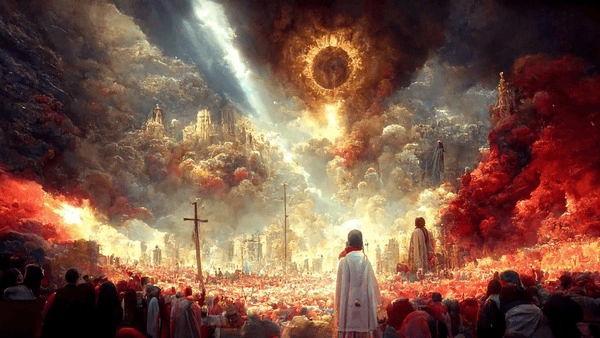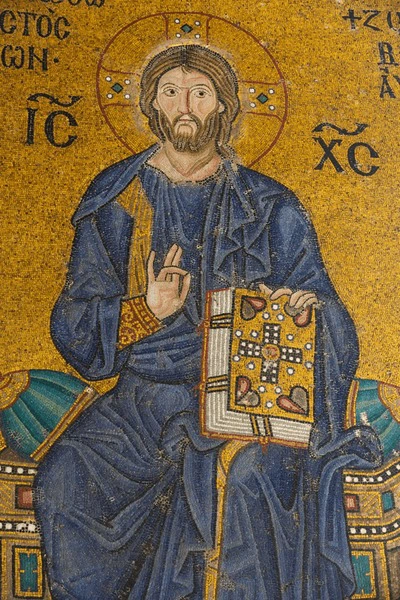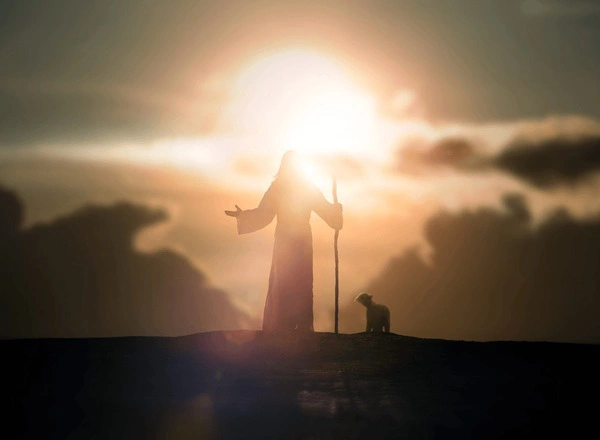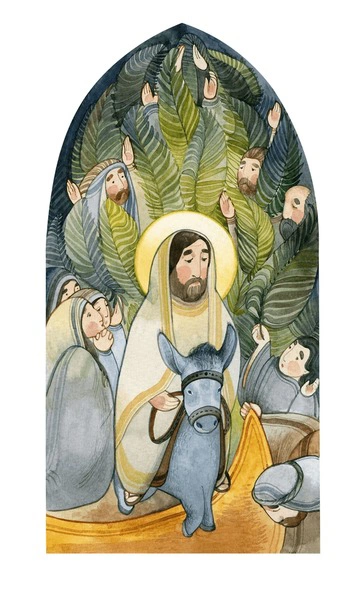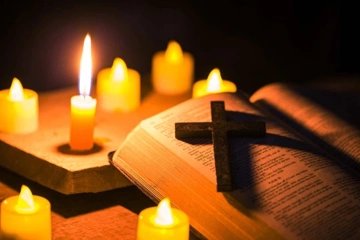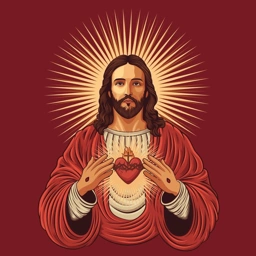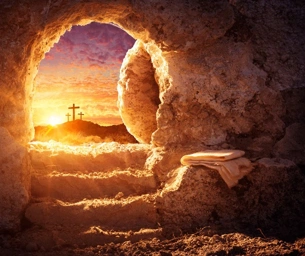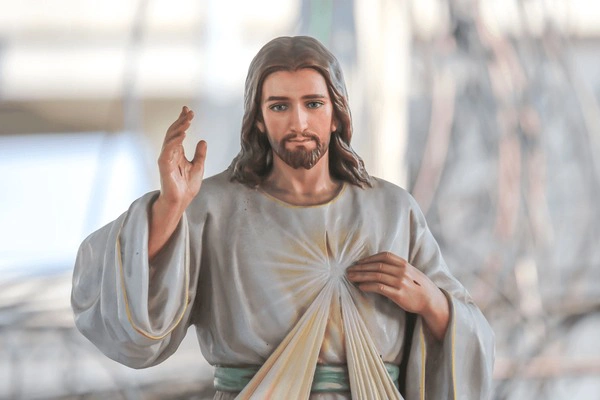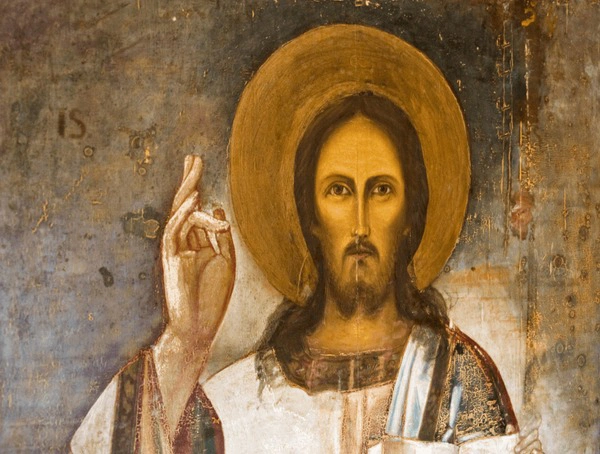
The Newborn King: Herod's Disturbance and Jerusalem's Reaction
When King Herod heard about the newborn King, he was deeply disturbed, and all of Jerusalem shared in the unease. This narrative from Matthew 2:3 reflects the political and spiritual tensions of the time, offering timeless lessons on leadership, change, and faith.
Sarah Mitchell
26/11/2024 - 8 months ago

The Disturbance of King Herod
In the world of politics and power, the arrival of a new contender often stirs anxiety among those already in authority. This was precisely the scenario when King Herod heard the news of the birth of Jesus. Herod's reaction was not one of joy or curiosity but rather of deep disturbance and fear. He felt his throne was under threat, and this made him uneasy. Herod was known for his swift and ruthless actions to maintain power, and the thought of a newborn king posed a significant challenge to his rule.
Herod's disturbance can be attributed to his insecure grip on power. Having been placed on the throne by Roman authority, he knew his position was not as stable as he wished. Any whisper of a new king, especially one prophesied to have a divine mandate, would naturally unsettle him. This fear of losing control led Herod to act in ways that were driven more by paranoia than logic. The historical context of Herod's rulership reflects a pattern of maintaining authority through fear and manipulation.
For Herod, the news of Jesus' birth wasn't just about a baby being born but about a potential rival. Herod's insecurity and desperation to cling to power show how political leaders can react when their leadership is challenged. It offers a timeless reflection on how threats, whether real or perceived, can lead to drastic measures by those who fear losing their authority. Herod's reaction was rooted in a common human response to perceived threats, a theme that resonates through the ages.
The Reaction of Jerusalem
While Herod's reaction was one of disturbance, the rest of Jerusalem also felt the impact of the news about the newborn king. The city was abuzz with rumors and speculations about what this would mean for the future. The people of Jerusalem were not just bystanders; they were part of a society that would be affected by any shift in power. The news of a new king brought about uncertainty, as the stability of the region was heavily reliant on the current political structure.
For many residents of Jerusalem, the thought of a new king was both exciting and frightening. Exciting because it held the promise of change and possibly liberation from Herod's oppressive rule, but frightening because change can often bring chaos. The people were used to the status quo, and the idea of a new ruler, especially one with divine prophecy, was unsettling. Such news had the potential to disrupt their daily lives and create a sense of instability.
This reaction from Jerusalem highlights the broader theme of how new leadership can create ripples of uncertainty within a community. The city's mixed feelings reflect the tension between hope for a better future and the fear of the unknown. It serves as a reminder that political changes often come with complex emotions and varied responses from those who are directly impacted.
Prophetic Fulfillment and Spiritual Implications
The news of Jesus' birth also carried profound spiritual implications for those familiar with Jewish prophecies. For centuries, the Jewish people had awaited a Messiah, a savior who would bring peace and restoration. The news of a newborn king was seen by many as the fulfillment of these ancient prophecies. This spiritual dimension added another layer to the reaction of both Herod and the people of Jerusalem.
Herod, despite his fear, may have recognized the significance of these prophecies, which only heightened his paranoia. The idea of a king with divine backing was a formidable challenge to his earthly power. Meanwhile, for the devout in Jerusalem, the fulfillment of prophecy was a sign of hope and divine intervention. It reinforced their faith and anticipation of the Messiah's arrival, offering a beacon of light in turbulent times.
The spiritual implications of this event remind us of the enduring power of prophecy and faith in shaping human history. The anticipation of a savior brought both fear and hope, reflecting the dual nature of change and its impact on society. It underscores the belief that amidst political and social upheaval, there is a divine plan at work, guiding the course of events.
Lessons for Today
The story of King Herod's disturbance and the reaction of Jerusalem offers timeless lessons for today's world. Political tensions and power struggles remain prevalent, as leaders grapple with the challenges of maintaining authority amidst change. Herod's story serves as a cautionary tale about the dangers of insecurity and the lengths to which individuals will go to preserve their power.
For communities facing change, the reaction of Jerusalem serves as a reminder of the complexity of emotions that come with new leadership. Balancing hope and fear, stability and change, remains a challenge for societies today. The story encourages us to navigate these transitions with faith and openness, trusting that there is a greater plan at work.
Ultimately, the spiritual undertones of this narrative highlight the enduring significance of faith in guiding us through times of uncertainty. Just as the people of Jerusalem looked to prophecy for hope, we too can find solace in spiritual truths that offer guidance and reassurance. The birth of Jesus, heralded as a king, continues to inspire reflections on leadership, faith, and the unfolding of divine purpose in our lives.

